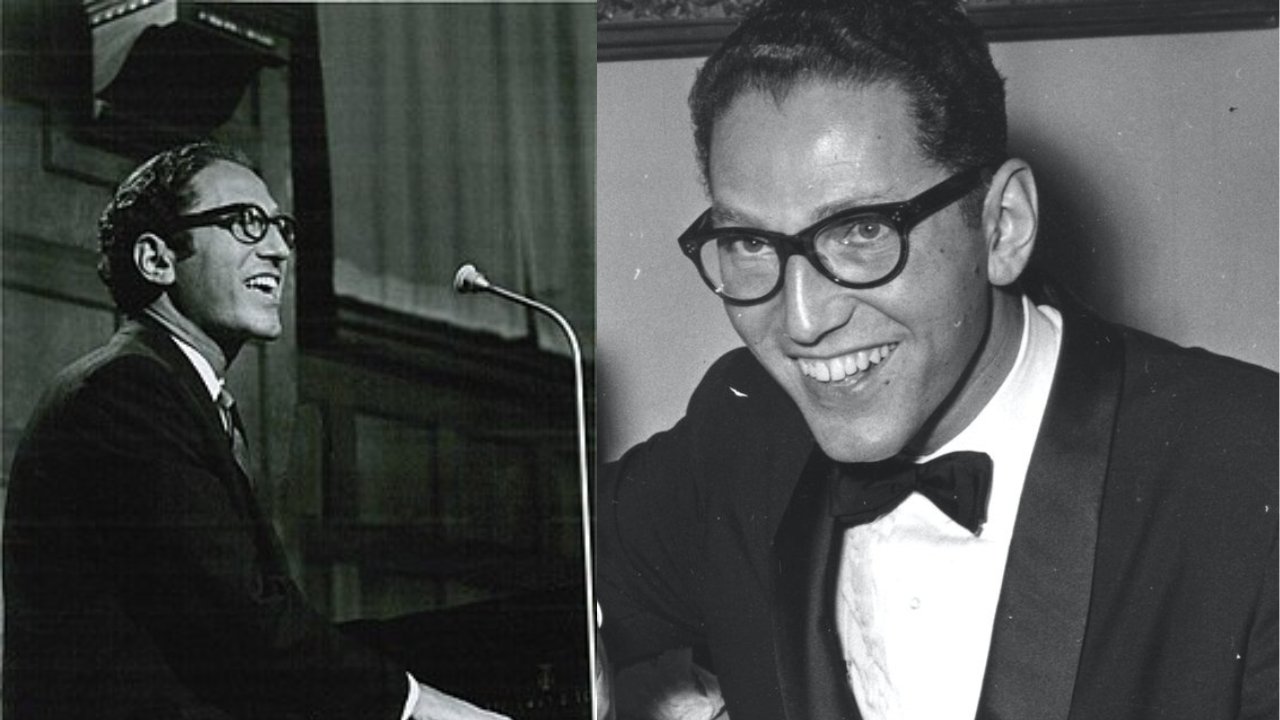Tom Lehrer: A Legacy of Satire and Song
Tom Lehrer, the Harvard-trained mathematician and musical satirist who died on July 26, 2025, at age 97, left an indelible mark on American culture with his sharp wit, irreverent humor, and catchy melodies. Born on April 9, 1928, in Manhattan to secular Jewish parents, Lehrer blended his academic brilliance with a unique brand of musical comedy that skewered societal norms, politics, and even the Catholic Church during the 1950s and 1960s. His modest output—37 songs—belied his outsized influence, inspiring comedians like “Weird Al” Yankovic, Rachel Bloom, and The Lonely Island.
Early Life and Academic Beginnings
A child prodigy, Lehrer entered Harvard University at 15 after graduating from the Loomis Chaffee School. He earned a bachelor’s degree in mathematics in 1946 and a master’s the following year, later pursuing graduate studies but never completing his PhD. While at Harvard, he began writing comic songs to entertain friends, including “Fight Fiercely, Harvard,” a satirical take on the university’s fight song that became a campus staple. His early performances, dubbed the “Physical Revue,” showcased his knack for blending intellectual rigor with humor, parodying everything from mathematics to musical theater.
Lehrer’s nonacademic stints included working at Los Alamos for the Atomic Energy Commission in 1952 and serving in the Army at the National Security Agency (NSA) from 1955 to 1957, where he later revealed he used nuclear weapons work as a cover for his classified NSA duties. These experiences fueled songs like “It Makes a Fellow Proud to Be a Soldier” and “Wernher von Braun,” which critiqued military and scientific amorality.
Musical Career and Satirical Genius
In 1953, Lehrer invested $15 to record Songs by Tom Lehrer in a single session, pressing 400 copies. Priced at $3 (about $35 in 2024), the album spread through word-of-mouth, selling an estimated half-million copies despite radio stations’ reluctance to air its controversial content. Songs like “Poisoning Pigeons in the Park,” with its darkly humorous take on urban pest control, and “I Hold Your Hand in Mine,” a necrophiliac ballad, shocked and delighted listeners. Lehrer quipped that his songs spread “like herpes, rather than ebola,” reflecting their slow but persistent popularity.
In 1959, he released two versions of his second album: More of Tom Lehrer (studio) and An Evening Wasted with Tom Lehrer (live), featuring tracks like “The Elements,” a rapid-fire recitation of the periodic table set to Gilbert and Sullivan’s “Major-General’s Song.” His work for the satirical TV show That Was the Week That Was in 1964–65 produced That Was the Year That Was, including “The Vatican Rag,” which mocked Catholic liturgy, and “We Will All Go Together When We Go,” a cheerful take on nuclear annihilation.
Lehrer’s style—maddeningly cheerful melodies paired with sardonic lyrics—set him apart. He attacked societal hypocrisy by embracing it, as Rachel Bloom noted: “When Tom Lehrer wanted to ridicule and attack something, he did it from the inside.” His literate, polite subversion influenced a generation of satirists, though he believed his songs only “titillated the converted” rather than changed minds.

Retreat from the Spotlight
By the mid-1960s, Lehrer largely retired from performing, uncomfortable with the “anonymous affection” of audiences and disillusioned by the radicalism of the era’s counterculture. He returned to academia, teaching mathematics and musical theater at Harvard, MIT, and the University of California, Santa Cruz, until 2001. His course “Math for Tenors” and musical theater workshops were legendary among students. A brief resurgence came in 1980 with Tomfoolery, a London revue of his songs produced by Cameron Mackintosh, which ran Off-Broadway and inspired over 200 productions. Lehrer performed publicly for the last time in 1998, singing “Poisoning Pigeons in the Park” and an updated “Who’s Next?” for Mackintosh’s tribute.
In 2020, Lehrer made headlines by releasing his song copyrights to the public domain, a generous act that invited new generations to reinterpret his work. He wrote, “Help yourselves, and don’t send me any money.” This move, coupled with a 2024 London revue, Tom Lehrer Is Teaching Math and Doesn’t Want to Talk to You, underscored his enduring appeal.
Legacy and Personal Notes
Lehrer’s personal life remained private. Never married, he jokingly attributed this to his short attention span. He split his time between Cambridge and Santa Cruz, maintaining a modest lifestyle. Fans cherished his wit, as seen in his 2012 response to rapper 2 Chainz’s request to sample “The Old Dope Peddler”: “I grant you motherfuckers permission to do this. Please give my regards to Mr. Chainz, or may I call him 2?” A fan’s 2021 visit and a signed book with a gold pen inscription—“Best Wishes, Tom Lehrer”—revealed his enduring charm.
Lehrer’s death prompted tributes from across the entertainment world. “Weird Al” Yankovic mourned his “great, great” hero, while Rachel Bloom praised his genre-defining comedy. His songs, now freely available, continue to resonate, offering biting commentary on human folly. As Lehrer once wrote, “If, after hearing my songs, just one human being is inspired to say something nasty to a friend, or perhaps to strike a loved one, it will all have been worth the while.” His legacy—equal parts humor, intellect, and subversion—ensures his music will endure, like the herpes he humorously likened it to, spreading slowly but surely.














Post Comment